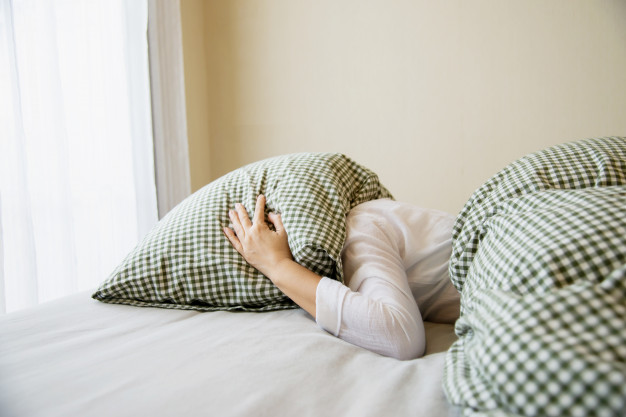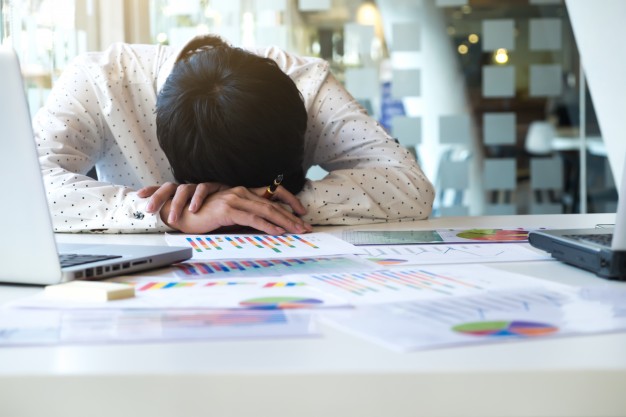
Sleep disorders are fast becoming an epidemic. America’s National Sleep Foundation’s most recent Sleep Index study revealed that 35% of adults rated their sleep as “poor” or “fair,” and 25% reported that they did not wake up feeling refreshed at least once during the previous seven days. Seeing as not many countries have such sleep data, it is fair to say that sleep disorders in our region could be same or even worse in places like Nigeria and other countries where the environment could be very challenging.
Getting a good night’s sleep is key to performing at your best during the day. The quality of a good rest is not the length of the sleep but how sound you sleep. The amount of sleep a person needs depends on many factors, including age. If you’re having trouble getting a sound sleep, you just might be suffering from one of these 5 sleep disorders. It is not enough to know the names and symptoms, we are also sharing some tips and treatments on how to handle these sleep disorders.
- Obstructive Sleep Apnea
Research show that about one in five adults suffer from at least a mild form of apnea. Sleep apnea is a condition in which you stop breathing while asleep. With sleep apnea, your breathing while you are asleep is interrupted by repeated pauses known as apneic events. It happens when something partly or completely blocks your upper airway during shut-eye. Breathing usually resumes with a loud gasp, snort, or body jerk. You may not sleep well, but you probably won’t be aware that this is happening. This condition can also reduce the flow of oxygen to vital organs and cause irregular heart rhythms.
Tips and Treatment:
Ask your doctor if you need a CPAP machine. (CPAP stands for continuous positive airway pressure.) With CPAP, you wear a mask while you sleep, and it raises the air pressure inside your throat. This keeps your airway more open, so you can sleep better.
For some people, it helps to wear a dental brace that holds the lower jaw forward during sleep. There are also several types of surgery available for sleep apnea.
- Insomnia
This is a sleep disorder characterized by difficulty falling and/or staying asleep. Insomnia varies in how long it lasts and how often it occurs. It can be short-term (acute insomnia) or can last a long time (chronic insomnia). It can also come and go, with periods of time when a person has no sleep problems. Acute insomnia can last from one night to a few weeks. Insomnia is called chronic when a person has insomnia at least three nights a week for three months or longer.

- Hypersomnia
This refers to either excessive daytime sleepiness or excessive time spent sleeping, it is a condition in which a person has trouble staying awake during the day. People who have hypersomnia can fall asleep at any time — for instance, at work or while they are driving. They may also have other sleep-related problems, including a lack of energy and trouble thinking clearly.
Tips and Treatment for Insomnia
- Please see a doctor or a cognitive behavioural therapist for professional help.
- Go to bed the same time each night and get up at the same time each morning and don’t nap during the day.
- Stop stressful chores or discussions long before you go to bed.
- Relax before bedtime. Try deep breathing, prayer, gentle stretching, meditation, or writing a journal.
- Can’t sleep? Go into another room and read, or do something relaxing and quiet.
- Avoid caffeine and don’t drink alcohol before bed.
- Quit smoking.
- Exercise regularly and maintain a healthy diet.
- Avoid large meals before bedtime.
- Remove electronics such as laptops, smart phones from the bedroom or bed area.
- Circadian rhythm disorders
These are disruptions in a person’s circadian rhythm — a name given to the “internal body clock” that regulates the (approximately) 24-hour cycle of biological processes. The term circadian comes from Latin words that literally mean around the day. There are patterns of brain wave activity, hormone production, cell regeneration, and other biological activities linked to this 24-hour cycle. This rhythm is important in determining sleeping patterns such as when we sleep and when we wake, every 24 hours.The normal circadian clock is set by the light-dark cycle over 24 hours.
Tips and Treatment:
Treatment depends on the specific type of circadian rhythm disorder and may include adjustment of bedtimes and rise times, appropriately timed melatonin use, and bright light therapy.
- Restless Leg Syndrome (RLS)
About 10% of the population suffer from RLS, and it is said to be more common in women. Experts aren’t sure what causes RLS, but many say it is hereditary. Some medications have also been known to cause RLS whilst some women suffer from RLS during pregnancy. With RLS, there is an irresistible urge to move the limbs. This often occurs in the evening or during periods of rest, with some people kicking or moving up to hundreds of times per night.
Tips and treatment:
- Exercise regularly
- Cut down on alcohol and caffeine
- Medication may also be prescribed for severe cases.

